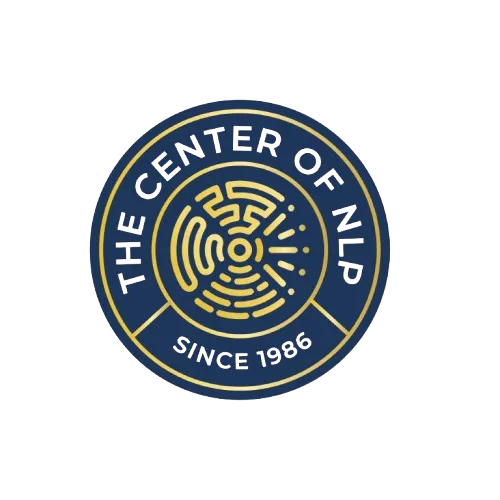
Achieving Peak Performance: NLP Techniques for Excellence
Neuro-Linguistic Programming (NLP) has emerged as a powerful tool for personal and professional development, allowing individuals to tap into their full potential and achieve peak performance. NLP revolves around understanding the relationship between language, thought patterns, and behaviors. By harnessing the power of NLP techniques, individuals can reprogram their minds, eliminate self-limiting beliefs, and enhance communication skills. This article will delve into the world of NLP and explore various techniques to achieve excellence in different areas of life.
1. Introduction to Neuro-Linguistic Programming (NLP)
Defining NLP
Neuro-Linguistic Programming, commonly known as NLP, is a psychological approach that focuses on understanding the dynamics between the neurological processes, language, and behavioral patterns learned through experience. It was developed in the 1970s by Richard Bandler and John Grinder.
Understanding the Power of Language and Mindset
NLP emphasizes the significance of language in shaping our thoughts and behaviors. By altering our internal dialogue and adopting a growth mindset, individuals can unlock their true potential.
2. The Fundamentals of NLP
Representational Systems
NLP categorizes individuals into different representational systems: visual, auditory, kinesthetic, olfactory, and gustatory. Understanding these systems allows for improved communication and connection with others.
Submodalities
Submodalities are the building blocks of our mental images, sounds, and feelings. By manipulating these submodalities, NLP techniques can help in changing perceptions and responses to certain stimuli.
Anchoring Techniques
Anchoring involves associating a specific feeling or emotion with a physical or mental trigger. NLP utilizes anchoring techniques to access desired emotional states at will.
3. Enhancing Communication Skills with NLP
Building Rapport
Building rapport is the foundation of effective communication. NLP offers techniques to establish rapport quickly, fostering understanding and connection with others.
Mirroring and Matching
Mirroring and matching involve subtly imitating the body language, speech, and tonality of the person you are communicating with, leading to increased rapport and trust.
Pacing and Leading
Pacing involves aligning with the other person's current experience while leading involves gradually guiding them toward a desired outcome. NLP practitioners use this technique to influence and persuade positively.
4. NLP Techniques for Personal Development
Overcoming Limiting Beliefs
Limiting beliefs can hinder personal growth. NLP techniques like belief change patterns can help individuals replace limiting beliefs with empowering ones.
Setting Well-Formed Outcomes
NLP encourages individuals to set clear and achievable outcomes, utilizing specific criteria for success to create a path toward desired goals.
The Swish Pattern
The Swish Pattern is an NLP technique used to transform negative thought patterns into positive ones, facilitating personal transformation and growth.
5. Achieving Peak Performance with NLP
Utilizing the Circle of Excellence
The Circle of Excellence is an NLP technique that allows individuals to access their peak performance states, enhancing confidence and competence in challenging situations.
The Fast Phobia Cure
NLP offers a rapid and effective method to overcome phobias and fears by altering the subconscious response to triggers.
Visualizing Success
Visualization is a powerful NLP technique that involves mentally rehearsing success scenarios, and enhancing self-belief and motivation.
6. Using NLP in Business and Sales
Building Effective Sales Strategies
NLP techniques can help sales professionals build rapport with clients, understand their needs, and close deals effectively.
Negotiation Techniques
NLP provides valuable tools for negotiation, enabling individuals to understand and influence the perspectives of others.
Persuasion and Influence
NLP techniques for persuasion can be ethically applied to encourage positive decision-making in others.
7. Applying NLP in Relationships
Improving Communication in Relationships
NLP can foster better communication, empathy, and understanding in personal relationships, leading to healthier connections.
Resolving Conflicts with NLP
NLP techniques can be used to resolve conflicts by uncovering underlying needs and finding mutually beneficial solutions.
Enhancing Empathy and Understanding
NLP promotes empathy and active listening, enabling individuals to connect deeply with others.
8. NLP and Emotional Intelligence
Understanding Emotions and NLP
NLP helps individuals recognize and manage their emotions, leading to increased emotional intelligence.
Managing Emotions with NLP Techniques
NLP techniques like anchoring and reframing can assist in managing emotional responses effectively.
9. Overcoming Procrastination with NLP
Identifying the Root Causes of Procrastination
NLP helps identify the underlying causes of procrastination and provides strategies to overcome it.
Using NLP Techniques for Motivation
NLP techniques can boost motivation and foster a proactive approach toward tasks and goals.
10. NLP for Stress Reduction and Relaxation
Anchoring Relaxation States
NLP techniques can anchor relaxation states, allowing individuals to access calmness during stressful situations.
Reframing Stressful Situations
NLP facilitates the reframing of stressful situations, altering perceptions and reducing stress.
11. Ethical Considerations in NLP
Responsibility and Ethical Use
NLP practitioners must exercise responsibility and ethical considerations in their work to ensure positive and constructive outcomes.
Avoiding Manipulation
Ethical NLP use involves refraining from manipulating others for personal gain.
12. The Future of NLP
Advancements and Innovations
The field of NLP continues to evolve with ongoing research, leading to exciting advancements and new applications.
Integrating NLP with Technology
NLP is increasingly being integrated with technology, expanding its potential for various industries and domains.
Conclusion
In conclusion, Neuro-Linguistic Programming (NLP) offers a powerful set of techniques to achieve excellence in various aspects of life. From personal development and communication skills to achieving peak performance, NLP provides individuals with the tools to reprogram their minds and unlock their full potential. By responsibly and ethically applying NLP techniques, individuals can lead happier, more fulfilling lives and build meaningful relationships with others.
For inquiries and further information, we'd love to hear from you: [email protected]
FAQs
Is NLP scientifically proven to be effective?
NLP has garnered mixed opinions within the scientific community. While some studies support its effectiveness, more research is needed to fully validate its claims.
Can NLP be used for therapy purposes?
Yes, NLP is used in therapeutic settings to address issues such as phobias, anxiety, and limiting beliefs.
Can I practice NLP techniques on my own?
Yes, many NLP techniques can be practiced individually, but seeking guidance from a certified NLP practitioner can enhance the effectiveness of the techniques.
How long does it take to see results with NLP?
Results vary depending on the individual and the complexity of the issue. Some experience immediate improvements, while others may require more time and practice.
Is NLP suitable for everyone?
NLP can be beneficial for most individuals, but it may not be suitable for those with certain mental health conditions. Consulting a healthcare professional is recommended before engaging in NLP practices.
Check Out For more:


